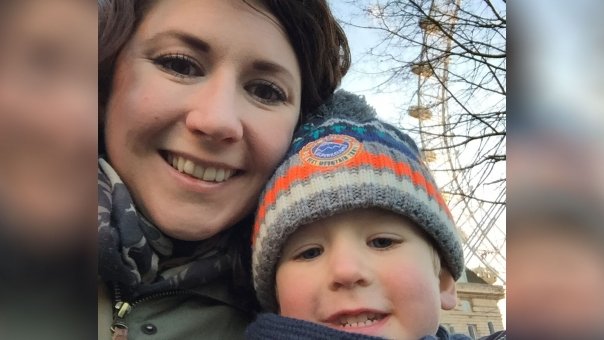Antibiotics and cancer: a personal story for World Cancer Day 2015
04 Feb 2015
Written by Longitude Prize Team
Imagining a world without antibiotics is very difficult for the generations who have grown up with easily available drugs to battle infectious bacteria. The everyday infections we pick up and treat with antibiotics are dealt with so simply in most cases that it is difficult to comprehend just how crucial antibiotics are to modern medicine.
But we risk losing such a vital line of defence because more bacteria are becoming resistant to the antibiotics we have available. Factors contributing to this global crisis include improper use of antibiotics, people not completing the full course of treatment correctly, and more people in hospital with chronic illness – providing a breeding ground for resistant bacteria.
One of the dangers in losing antibiotics as an effective treatment method is the knock-on effect on other medical procedures that antibiotics support – for example, nearly all types of surgery are reliant on antibiotics to ensure infection doesn’t take hold.
As Professor Peter Johnson, Cancer Research UK’s chief clinician, recently wrote a blog on how antibiotics are vitally important to cancer patients who frequently suffer from greatly weakened immune systems as a result of cancer, or cancer treatments such as surgery, radiotherapy or chemotherapy.
Claire Daniels, who works for Cancer Research UK looking for new ideas to raise money, shared her story with us, showing first-hand how important antibiotics are to cancer patients. Claire was diagnosed with an aggressive form of Hodgkin’s Lymphoma when she was just 19 years old.
‘To say I was shocked is an understatement. I’d seen for myself the experience of both of my grandmothers dealing with breast cancer, and as a biology student I was well aware of 1 in 3 as the life time cancer risk. But I definitely had an “it won’t ever happen to me” attitude – as I think a lot of people have.’
Claire went through chemotherapy, a stem cell transplant to get rid of all the cancer cells in her bone marrow, and radiotherapy. This prolonged period of treatment meant that she had to take a break from her university degree, studying biology.
‘Although I responded well to the first round of chemotherapy, my cancer came back rapidly and aggressively. This news was far more devastating than the initial diagnosis, as suddenly my future was a lot less certain. As a result, the following treatment I received was intense, lasting almost 18 months and really taking a toll on my body. Thankfully though, it was successful.’
While the cancer treatment itself was a success, antibiotics were crucial to Claire’s recovery. Infections in cancer patients can be very serious – even fatal – and patients are highly dependent on effective antibiotics to keep these infections at bay.
‘Because I was so susceptible to infection, I took antibiotics for a long time during my treatment. I was constantly on high alert for any signs of infection – which would mean being taken straight to hospital for IV antibiotics.
‘My treatment culminated in a stem cell transplant, where doctors destroyed the cells in my bone marrow in an effort to wipe out every last cancer cell, before transplanting new bone marrow cells. This completely obliterated my immune system for a long time. I was kept in isolation for 4 weeks – even the TV was on the other side of a glass window! During this period, antibiotics were vital in protecting me.’

After beating cancer, Claire became pregnant against all the odds.
‘Because of the intensity of my treatment, my normal fertility cycle stopped, and after investigations doctors told me that there was a 99.9% chance I’d never have children. So to become pregnant was a huge surprise, and my husband and I were over the moon.’
However, becoming pregnant after such intensive treatment comes with dangers that don’t affect others, and Claire found herself in hospital once again.
‘Unfortunately I developed heart failure during my pregnancy because one of the chemotherapy drugs that I had during my treatment had damaged my heart. ‘
‘At 35 weeks, my heart couldn’t cope with the pregnancy any longer and labour was induced early. When my son Jackson was born (54 hours later!) he was given antibiotics to fight off any infections which could have been fatal to a premature baby.’
Antibiotics are crucial to helping babies who are born prematurely, because their immune system hasn’t developed enough to protect them against infections.
Claire knows the treatments she received would not have been available without research, and she’s passionately committed to supporting more research to save more lives in the future. So on February 4th, to mark World Cancer Day, Claire is urging people to come together and unite in the fight against cancer by pledging their support and wearing a Unity band. You can find more details of how to support World Cancer Day on the Cancer Research UK website.
Antibiotics were essential in helping Claire through her cancer treatment, and protected her prematurely born son. Being able to diagnose bacterial infections easily and target the right antibiotics to the right bacteria will keep antibiotics effective in these life and death situations. The amazing advances in cancer treatment, surgery and medical technology can all be undermined by simple bacteria. We need to preserve our precious antibiotics for future generations.
If you have an idea for a diagnostic that could help slow antibiotic resistance, enter Longitude Prize now.
